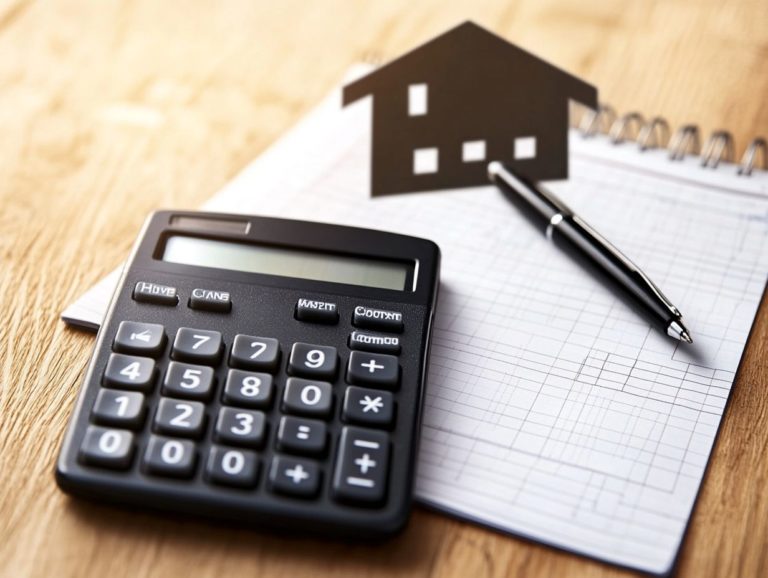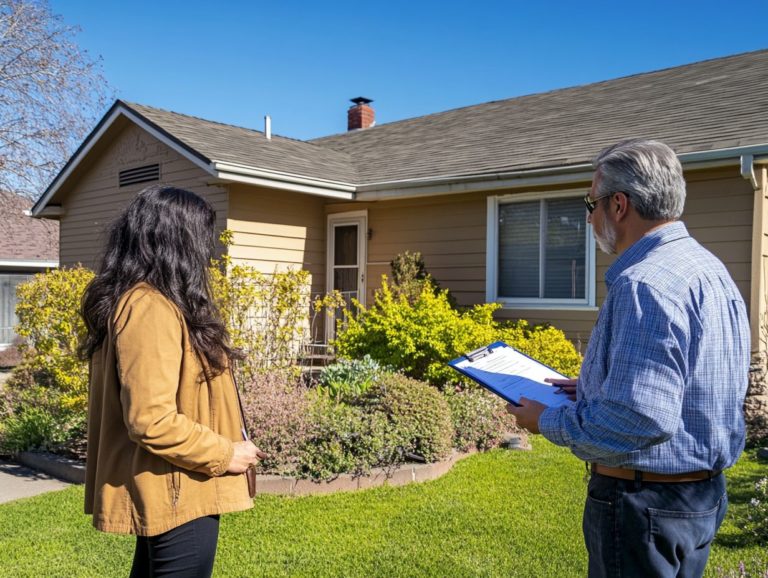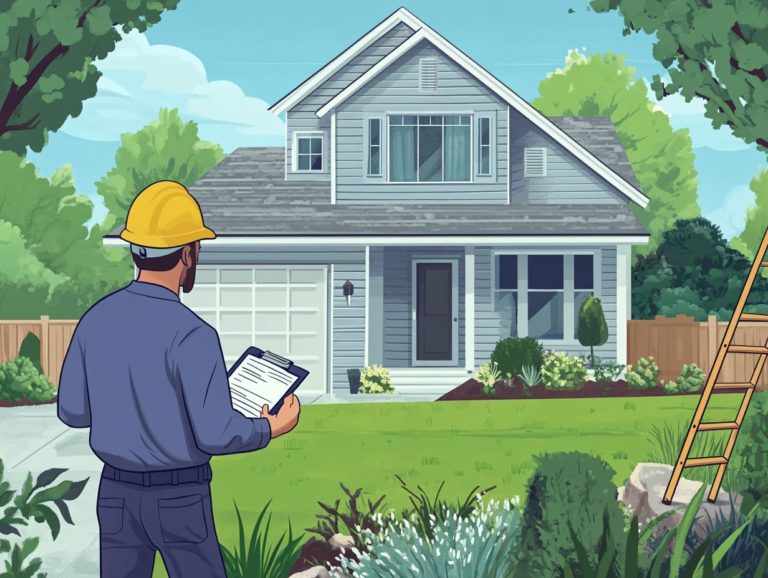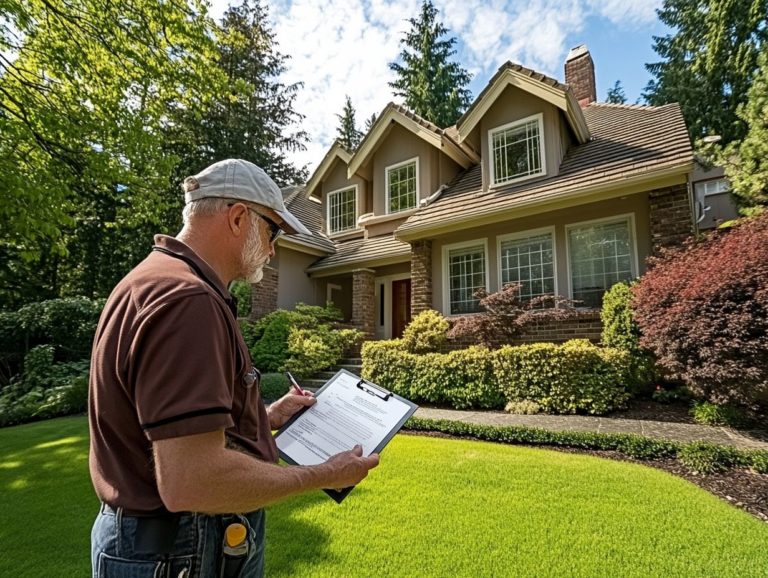Understanding Home Inspection Standards and Practices
Understanding home inspections is crucial when you’re buying or selling a home; it can truly make all the difference in your experience.
This article delves into what a home inspection involves, why it’s significant for both buyers and sellers, and the common standards that shape the process.
You ll discover the steps involved in an inspection, how to interpret the findings, and valuable tips for selecting the right inspector. Whether you’re stepping into the market or gearing up to sell, having a solid grasp of home inspections is essential for ensuring a smooth transaction.
Contents
- Key Takeaways:
- What is a Home Inspection?
- Benefits of Home Inspections
- Common Standards and Practices
- The home inspection process
- Interpreting the Inspection Report
- Choosing a Home Inspector
- Frequently Asked Questions
- What are home inspection standards and practices?
- Why is it important to understand home inspection standards and practices?
- Who sets the standards and practices for home inspections?
- What are some common components inspected during a home inspection?
- Are there any limitations to a home inspection?
- Do I need to be present during the home inspection?
Key Takeaways:

Home inspections are essential in ensuring the safety and quality of a property, providing buyers and sellers with peace of mind.
Industry standards and regulations exist to guide home inspectors in conducting thorough and unbiased inspections, making it crucial to understand home inspector qualifications.
When choosing a home inspector, consider their qualifications, experience, and reputation, and be sure to ask questions about their process and report interpretation.
What is a Home Inspection?
A home inspection is your gateway to a thorough evaluation of a property’s condition, performed by a qualified inspector who carefully checks various home systems.
This includes everything from structural integrity to plumbing, electrical systems, and heating, ventilation, and air conditioning (HVAC). The process is based on clear rules and ethical principles, which safeguard both the inspector’s integrity and your interests as a client.
This ensures you get a trustworthy snapshot of the property’s condition, a vital component for making informed decisions in real estate transactions.
Definition and Purpose
The primary purpose of a home inspection is to provide you with an objective evaluation of a property’s condition, ensuring you receive a reliable assessment of any existing defects. This evaluation is crucial for identifying potential safety issues, such as faulty wiring or hidden mold, which could pose significant health risks for future occupants.
Home inspections also provide valuable insights into the market value of properties, giving power to both buyers and sellers to make informed decisions. For example, a leaky roof or outdated plumbing systems can lead to costly repairs, ultimately impacting your negotiation process.
By swiftly addressing these concerns before a sale, you can secure peace of mind, confident that you are making a well-informed investment.
Benefits of Home Inspections
Home inspections offer a wealth of benefits, enhancing your confidence in real estate transactions. They ensure that both buyers and sellers are fully informed about the property’s condition, paving the way for satisfied clients and favorable inspection outcomes.
By prioritizing inspections, you give power to yourself with the knowledge needed to make informed decisions in the property market.
In summary, conducting thorough home inspections can significantly impact your buying or selling experience, reinforcing the importance of this process.
Why They are Important for Buyers and Sellers
Home inspections are essential for you as both a buyer and a seller. They reveal property defects, enabling you to make informed decisions and proactively address issues.
These assessments are pivotal in the real estate landscape, helping you avoid unexpected and often costly repairs down the line.
By identifying maintenance needs before you finalize a purchase, you can negotiate repairs or adjust your offers, ensuring the protection of your investment.
As a seller, conducting inspections in advance can be a game-changer. It allows you to fix minor issues that might turn potential buyers away.
This proactive strategy not only boosts your property s market appeal but can also lead to a higher selling price.
Ultimately, comprehensive home inspections foster smoother transactions by building transparency and trust among everyone involved.
Common Standards and Practices
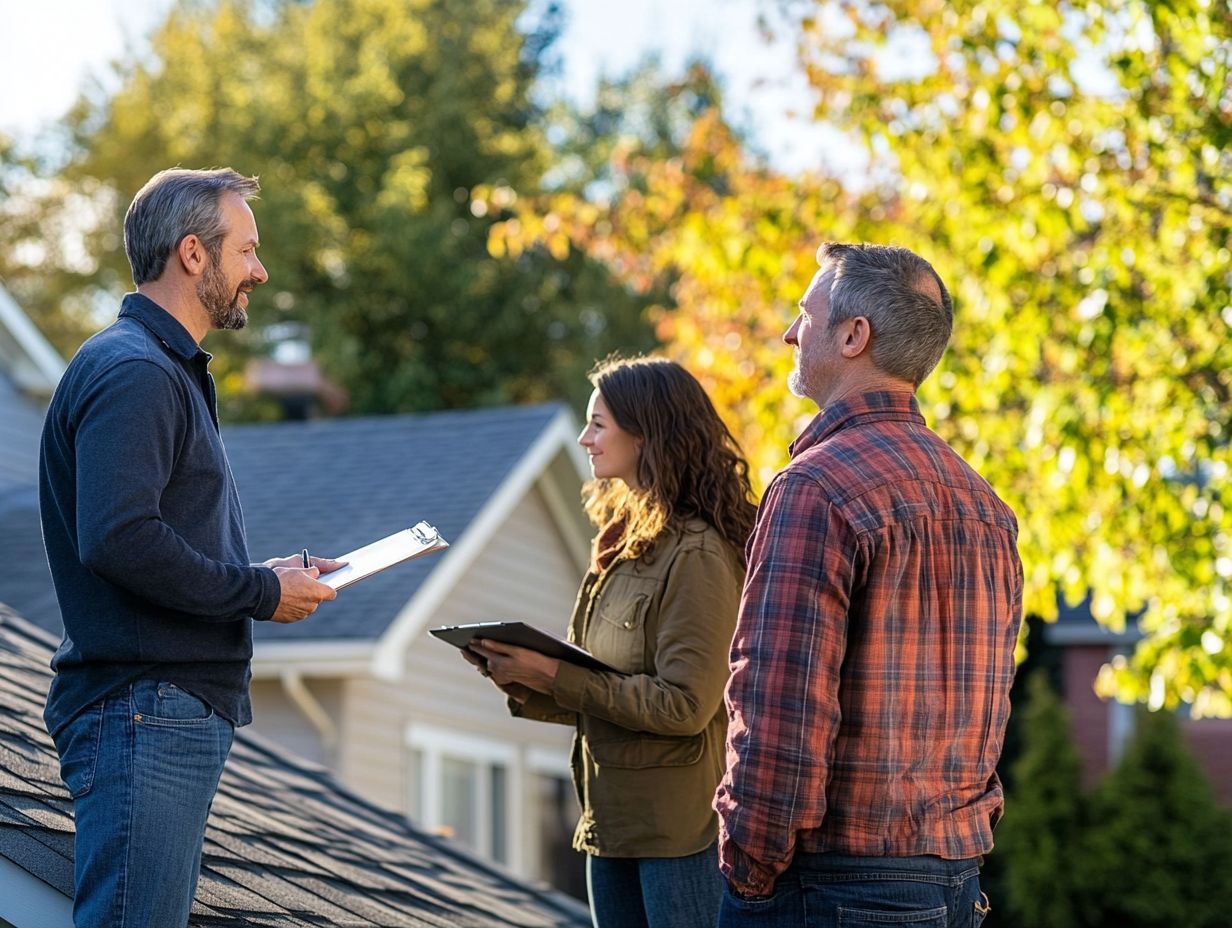
In the home inspection industry, common standards and practices are set by esteemed organizations such as ASHI and InterNACHI. These organizations establish ethical principles and offer comprehensive training courses, ensuring that inspectors like you uphold high levels of professional development while strictly adhering to accepted inspection processes.
Industry Guidelines and Regulations
Industry guidelines and regulations for home inspections require you to adhere to local building codes. This ensures that you fulfill your obligations to provide ethical and accurate assessments.
These regulations create essential frameworks that set the minimum standards for safety and quality in residential properties. Get to know your local codes and national standards, which may vary by region but collectively aim to protect consumers.
By following these established guidelines, you enhance your credibility and build trust with your clients, reassuring them that their homes are being evaluated against rigorous safety benchmarks.
This commitment to compliance safeguards your clients from potential hazards while elevating the overall integrity of the home inspection profession.
The home inspection process
The home inspection process entails a careful check of diverse structural elements and home systems. This results in comprehensive inspections that provide you with critical insights into the condition of the property under evaluation.
What to Expect During an Inspection
During a home inspection, you can anticipate a careful evaluation of the property. This follows safety rules and effective communication principles to ensure you fully grasp the inspection outcomes and findings.
The inspector’s methodology typically entails a systematic assessment of both the interior and exterior components of your home, covering essential areas such as the roof, foundation, plumbing, and electrical systems.
Key focal points include the condition of major appliances, any visible signs of water damage, and the overall safety of the structure. This analysis is crafted to identify potential issues and enlighten you about your property.
Transparent communication is essential. You are encouraged to ask questions throughout the process for clarity on any findings. Your data is handled with the utmost confidentiality, giving you peace of mind as you navigate the next steps in your journey of homeownership.
Interpreting the Inspection Report
Interpreting the inspection report is essential for you. It offers comprehensive insights and recommendations regarding potential property defects and issues that may warrant your attention.
Understanding these findings gives you the power to make informed decisions about your investment and ensures you are fully aware of any necessary considerations moving forward.
Understanding the Findings and Recommendations

Understanding the findings and recommendations outlined in the inspection report is crucial as you navigate your property evaluation.
For buyers, these insights reveal essential information about the property’s condition, highlighting everything from minor cosmetic flaws to significant structural issues that could impact safety and value.
If you re a seller, the report may contain recommendations for repairs or enhancements that could boost your property s marketability and potentially elevate sale prices.
Inspectors must uphold their ethical duty by providing clear and actionable insights. This allows both you and the other party to enter negotiations with transparency and awareness. It cultivates a trustworthy atmosphere where informed decisions pave the way for mutually beneficial outcomes.
Choosing a Home Inspector
Choosing a home inspector is a pivotal decision for you. It necessitates a careful evaluation of inspector standards, certification programs, and recommendations from previous clients.
This thorough approach ensures you make an informed and responsible choice, ultimately safeguarding your investment.
Factors to Consider and Questions to Ask
When selecting a home inspector, it s crucial for you to consider various factors and ask the right questions to ensure you choose a qualified professional equipped with the necessary training and industry connections.
Start by inquiring about their certification and how frequently they engage in continuing education to keep up with industry standards. It s also wise to ask about their experience with homes similar to yours; familiarity with specific construction types can significantly influence the assessment.
Delve into their affiliations with reputable organizations, as these can offer valuable insight into their credibility. Connections with industry partners often indicate a commitment to established guidelines and ethical practices, enhancing your trust in their findings.
Ultimately, a thorough interview process will empower you to make a more informed decision.
Frequently Asked Questions
What are home inspection standards and practices?
Home inspection standards and practices refer to a set of guidelines and procedures followed by professional home inspectors to assess the condition of a property. To gain insight into this crucial step, it’s important to understand the home inspection process. These standards ensure a thorough and unbiased inspection is conducted and provide a framework for reporting the findings to the client.
Why is it important to understand home inspection standards and practices?

Understanding home inspection standards and practices is essential because it allows you to have realistic expectations of what a home inspector will assess and report on during the inspection. For more insights, refer to understanding the basics of home inspections. This knowledge also helps you better understand any issues that may arise and how they will be addressed.
Who sets the standards and practices for home inspections?
The standards and practices for home inspections are set by various organizations, including the International Association of Certified Home Inspectors (InterNACHI), the American Society of Home Inspectors (ASHI), and individual state licensing boards. To learn more about these guidelines, understanding the process of home inspections is crucial, as these standards are regularly updated to reflect changes in the industry and advancements in technology.
What are some common components inspected during a home inspection?
- The structural integrity of the building
- The condition of the roof and exterior
- The plumbing and electrical systems
- The heating, ventilation, and air conditioning systems
- The interior of the home, including walls, ceilings, and floors
- Issues with insulation, ventilation, and potential safety hazards
Are there any limitations to a home inspection?
Yes, there are limitations to a home inspection. Inspectors cannot see through walls or predict future issues. They also cannot inspect areas that are inaccessible or hazardous. Home inspections do not cover appliances, cosmetic issues, or code compliance.
Do I need to be present during the home inspection?
While it s not required for you to be present during the home inspection, it is highly recommended. Being there allows you to ask questions, see issues firsthand, and gain a better understanding of the inspector’s findings. It also gives you the opportunity to address any concerns with the inspector directly.
Don’t wait! Understand these standards to avoid costly surprises later! Consider hiring a qualified inspector or seeking further information to safeguard your investment.

